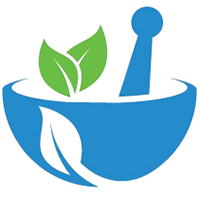Nasal congestion, a common ailment that can leave us feeling stuffed up and uncomfortable, is a frustrating experience for many. Whether it's due to allergies, a common cold, or environmental factors, a blocked nose can disrupt our daily lives and make it difficult to breathe freely. In this blog post, we'll explore the causes of sinus pain and sinusitis, as well as provide practical solutions to help you find relief.
Understanding Sinus Pain and Sinusitis
Sinusitis, the inflammation of the sinuses, can be the culprit behind that persistent sinus pain and nasal congestion. Symptoms of sinusitis may include a stuffy or runny nose, facial pain or pressure, headaches, and even fever. Identifying the underlying cause is the first step in addressing the issue effectively.
Causes of a Blocked Nose
Allergies are a common trigger for nasal congestion, as the body's immune system reacts to environmental irritants like pollen, dust, or pet dander. The common cold can also lead to a blocked nose, as the nasal passages become inflamed and swollen. Additionally, environmental factors such as dry air, smoke, or pollution can contribute to nasal congestion.
Home Remedies for Nasal Congestion
Fortunately, there are several home remedies that can provide relief for nasal congestion. Saline nasal rinses, using a neti pot or saline spray, can help flush out mucus and reduce inflammation. Steam inhalation, by taking a hot shower or using a humidifier, can also help loosen mucus and soothe the nasal passages. Staying hydrated by drinking plenty of fluids is also important for maintaining healthy nasal function.
Over-the-Counter Treatments
If home remedies aren't providing enough relief, over-the-counter medications can be a helpful option. Decongestants, such as pseudoephedrine, can help shrink swollen blood vessels and reduce nasal congestion. Antihistamines, like cetirizine or loratadine, can be effective for allergy-related nasal congestion. Nasal sprays containing corticosteroids or saline solutions can also provide targeted relief.
When to Seek Professional Help
If your nasal congestion persists for more than a week or is accompanied by severe pain, fever, or other concerning symptoms, it's best to consult a healthcare professional. They can perform a thorough examination, identify the underlying cause, and recommend appropriate treatment, which may include prescription medications or even surgery in some cases.
Prevention Tips
To help prevent future episodes of nasal congestion, maintain good hygiene by washing your hands regularly and avoiding touching your face. Identify and avoid any known triggers, such as certain allergens or environmental irritants. Incorporating these preventive measures into your daily routine can go a long way in keeping your nasal passages clear and your breathing easy.
By understanding the causes of nasal congestion and exploring the various remedies available, you can take control of your sinus health and find the relief you need. Remember, if the problem persists or worsens, don't hesitate to seek professional medical advice. With the right approach, you can breathe easy and enjoy a clear, comfortable nasal passage.




